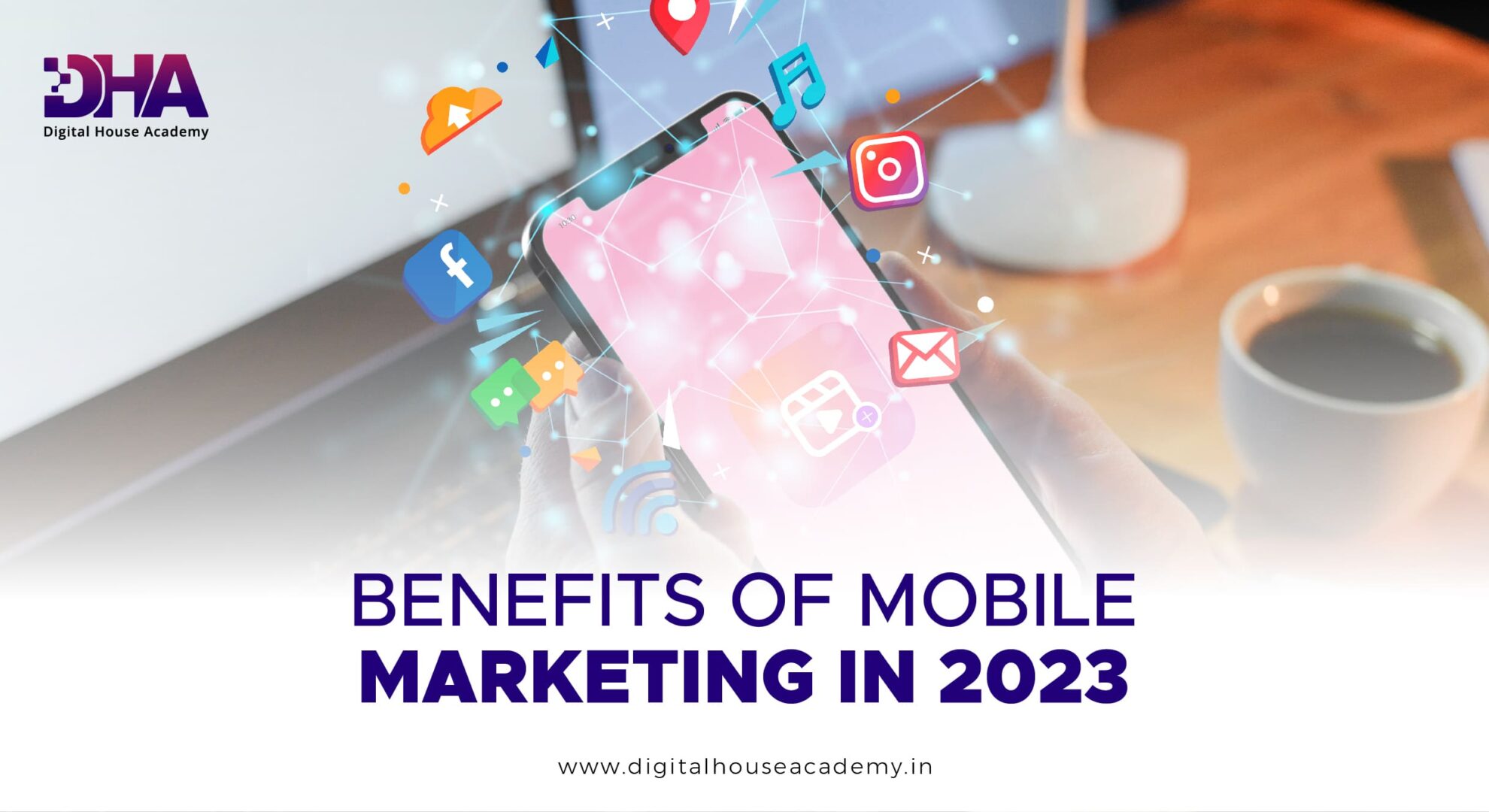Mobile marketing refers to the practice of promoting products, services, or brands to target audiences through mobile devices such as smartphones, tablets, and wearable devices. It involves utilising various marketing strategies and techniques to reach mobile users and engage with them effectively. Mobile marketing offers several advantages, including the ability to reach a large audience, high user engagement, real-time targeting, personalization, and tracking and analytics capabilities. It has become an integral part of the overall marketing strategies for businesses, as mobile devices have become an essential part of people’s daily lives. Mobile marketing is essential in today’s digital landscape due to the widespread use of smartphones and mobile devices. Here are several reasons why mobile marketing is crucial: Benefits of Mobile Marketing in 2023 Increasing Mobile Usage The number of mobile device users is consistently growing, with people relying on their smartphones for various tasks like browsing the internet, accessing social media, shopping, and more. Mobile marketing allows businesses to reach a larger audience by targeting these mobile users. Wide Reach and Accessibility Mobile marketing provides businesses with the opportunity to connect with consumers anytime and anywhere. Mobile devices are portable and easily accessible, allowing businesses to engage with their target audience wherever they are, whether at home, work, or on the go. Personalization and Targeting Mobile marketing enables businesses to gather data on user behaviour, preferences, and demographics, allowing for highly targeted and personalized marketing campaigns. This level of customization increases the chances of capturing the attention of potential customers and achieving higher conversion rates. Mobile Apps and Notifications Many businesses have their own mobile applications to enhance user experience and customer loyalty. Through mobile apps, companies can send push notifications to users, keeping them updated about new products, promotions, discounts, and other relevant information. Location-Based Marketing Mobile devices provide the ability to gather location data, allowing businesses to deliver targeted marketing messages based on a user’s geographic location. This enables businesses to provide localized offers, promotions, and recommendations, increasing the relevance and effectiveness of their marketing efforts. Social Media and Mobile Advertising Social media platforms are predominantly accessed through mobile devices. Utilizing mobile marketing strategies, such as mobile ads on platforms like Facebook, Instagram, or Snapchat, can help businesses reach their target audience effectively and engage with them on their preferred platforms. Quick and Instant Communication Mobile marketing facilitates real-time and direct communication with customers through channels like SMS, mobile messaging apps, and social media platforms. This enables businesses to provide instant support, respond to inquiries, and build stronger customer relationships. Mobile Payment Options Mobile marketing can incorporate mobile payment solutions, making it convenient for customers to make purchases directly from their mobile devices. This seamless and streamlined process enhances the overall customer experience and encourages more conversions. Competitive Advantage As mobile marketing continues to evolve, businesses that adopt and leverage mobile marketing strategies gain a competitive edge. By staying ahead of the curve, companies can reach customers before their competitors, establish brand loyalty, and build a strong mobile presence. Here are some examples of mobile marketing campaigns conducted by various companies: Starbucks: Starbucks launched a mobile app that allows customers to order and pay for their drinks in advance. They offered exclusive discounts and rewards to app users, encouraging them to make repeat purchases. The app also included a feature that notified users of nearby Starbucks locations. Nike: Nike created the Nike+ app, which connects with their fitness tracking devices and allows users to track their workouts, set goals, and share their achievements on social media. The app also offers personalized training plans and access to exclusive content, creating a community of fitness enthusiasts and promoting Nike products. Coca-Cola: Coca-Cola introduced a mobile marketing campaign called “Share a Coke.” They printed popular names on their product labels and encouraged customers to find and share bottles with their names on social media using a specific hashtag. The campaign generated significant user engagement and increased brand visibility. In conclusion, mobile marketing in 2023 offers numerous benefits that businesses can leverage to maximize their reach and engagement with customers. The widespread use of smartphones and the ever-increasing connectivity have made mobile devices an essential part of people’s lives. By capitalizing on this trend, businesses can create personalized and targeted marketing campaigns, delivering their messages directly to consumers’ pockets. Mobile marketing provides a unique opportunity to engage with customers in real-time, foster brand loyalty, and drive conversions. Additionally, the integration of advanced technologies like augmented reality (AR), artificial intelligence (AI), and location-based services further enhances the effectiveness of mobile marketing strategies. As we move forward in the digital age, embracing mobile marketing has become imperative for businesses seeking to stay competitive and connect with their target audience on a more personal and impactful level. Read Latest Blog: How AI is Transforming Digital Marketing?
Read More
